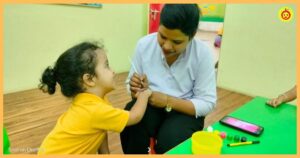Introduction
Preschool is an important stage in a child’s development, where they start to explore the world near them and lay the basis for coming learning stages. Safety in preschool conditions is important, as it provides that children can develop and learn without unnecessary risks.
Understanding Preschool and Its Importance
Preschool is an education program created for children in the early stages of their life, between the ages of 3 and 5 years old. It plays a basic role in preparing children for the coming schooling stages by introducing them to academic concepts, social interactions, and basic life skills.
The Safety Concerns in Preschool Environments
Preschools can present various safety concerns, including:
- Physical Dangers: Physical dangers or hazards may include slippery floors, sharp objects, and uneven surfaces that can harm your child.
- Health Concerns: The potential for the spread of illnesses in tight groups can pose a threat to the health of your little ones.
- Security: Unauthorised access and safety during pick-up and drop-off times is a crucial concern.
- Emergency Situations: Preparing for fires, earthquakes, or other unforeseen events that might affect your young ones.
Preschool Safety Tips for Parents and Caregivers
- Licensed Preschool must be chosen: As a caring parent, you should make sure that the Preschool is licensed and follows safety rules and guidelines that are issued for schools by the government.
- Visit: You should schedule a visit to evaluate the safety of the surroundings, including classrooms, play areas, and restrooms where your child will spend time.
- Staff Training: Parents have the right to ask if staff have training in CPR, first aid, and emergency response procedures.
- Communicate Allergies and Medical Conditions: You should be a responsible parent and inform the Preschool of any allergies or medical conditions your child may have, as that can save your young ones when they need medical help.
- Establish a Safe Transportation Plan: If your child is transported to and from Preschool, confirm whether the safety measures are in place or not.
Ensuring Safe Preschool Activities
- Supervision: Make sure that there is satisfactory supervision during playtime, meals, and restroom breaks for children.
- Safe Toys and Equipment: Inspect that toys and equipment are age-appropriate and regularly reviewed for safety.
- Hygiene Practices: Promote handwashing and cleanliness to stop the spread of germs.
- Allergen Awareness: The Preschool must be aware of any food allergies your child has.
Staff Training and Supervision
A good preschool staff should undergo regular safety training, including CPR and first aid certification. Supervision should be continuous, and staff-to-child ratios must meet safety guidelines to ensure that each child receives proper attention and care.
Emergencies and Safety Drills
Preschools should have well-defined emergency protocols, including evacuation plans for fires or natural disasters. Routine safety drills should be performed to make sure that both staff and children know how to respond in case of any emergency.
Conclusion
Safety tips outlined in this blog: parents, caregivers, and educators can create a secure and nurturing surrounding where children can learn, grow, and thrive with confidence.






